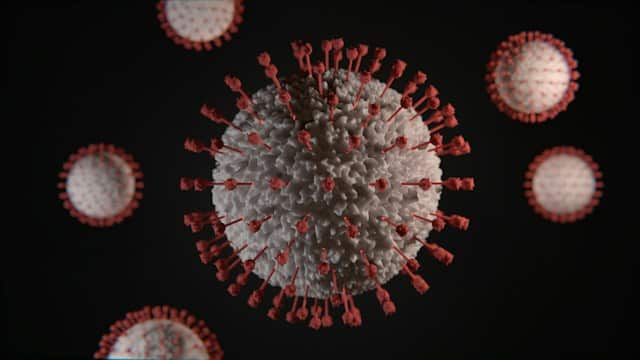From the breakfast you consume to the late-night snack you savor, every morsel of food you ingest interacts with your body’s intricate ecosystem. Specifically, it collaborates with your body’s microbiome, the trillions of microscopic organisms that live in your digestive tract. This article addresses a burning question: How do our dietary habits influence this crucial microbiome, and what are the health implications?
Understanding the Gut’s Microbiome
Before we delve into the effects of diet on the microbiome, let’s first comprehend the term microbiome. It refers to the massive population of microbial organisms, including bacteria, fungi, and viruses, residing in your gut. A healthy gut microbiome is vital for various bodily functions such as digestion, immune response, and even mental health.
Cela peut vous intéresser : Can Wearable Art and Fashion Influence Individual Identity and Mental Health?
Research has shown a direct link between the gut microbiota and various health conditions. For instance, some studies published on PubMed have found correlations between gut microbiota composition and obesity, diabetes, and cardiovascular diseases.
A diverse microbiome, with a wide variety of microbial species, is generally associated with good health. Conversely, a lack of microbial diversity could potentially lead to disease. Diet plays a significant role in determining the diversity and abundance of these gut microbes.
Lire également : Can Community-Based Social Art Projects Improve Mental Health Outcomes?
The Influence of Diet on the Microbiome
Diet is considered one of the most significant factors influencing the composition and function of our gut microbiota. Everything we consume has the potential to alter our gut bacteria’s diversity and abundance, either favorably or unfavorably.
A study cited on Crossref observed that dietary changes could alter the gut microbiota composition within 24 hours. Specific elements in our food, such as fiber, protein, and fat, interact differently with the microbiota.
Fiber, for instance, serves as food for beneficial bacterial species, promoting their growth. On the other hand, excessive protein intake could lead to an increase in harmful bacterial species. Therefore, the type and quantity of nutrients we ingest can significantly impact our gut microbiota.
The Health Implications of Dietary Influence on Microbiome
As we have established, diet can greatly affect the gut microbiome’s diversity and health. But what does this mean for our overall well-being? An imbalance in gut microbiota, often termed ‘dysbiosis,’ can have several health implications.
Research has found links between dysbiosis and a range of health issues, from metabolic disorders like obesity and diabetes to mental health conditions like depression and anxiety. These studies have shown the importance of maintaining a balanced and diverse microbiota for good health.
Google Scholar, a vast library of scholarly literature, also contains various studies showing a correlation between diet, gut microbiota, and disease risk. These findings emphasize the significance of adopting a microbiota-friendly diet for maintaining optimal health.
Adopting a Microbiota-Friendly Diet
Considering the profound influence diet has on the microbiome and overall health, it’s crucial to adopt a microbiota-friendly diet. This includes consuming a variety of foods rich in fiber, such as fruits, vegetables, and whole grains.
Regular intake of fermented foods like yogurt, kefir, and kimchi also promotes gut health, as these foods contain beneficial bacteria known as probiotics. On the other hand, diets high in saturated fat and sugar can lead to dysbiosis and increase disease risk.
To illustrate, a study published on PubMed showed that a diet high in fat and sugar altered the gut microbiota in mice, leading to increased inflammation and obesity risk. Conversely, a diet rich in fruits, vegetables, and whole grains was associated with a healthier and more diverse microbiota.
Concluding Thoughts
Understanding the intricate relationship between diet, the gut microbiome, and health can help us make more informed dietary choices. While more research is needed to fully comprehend these complex interactions, current evidence clearly indicates the significant role diet plays in shaping our gut microbiota and influencing our health.
So, as you plan your next meal, remember: what you’re really doing is feeding the trillions of microbes that help keep you healthy. Your food choices can either promote a diverse, balanced microbiota or disrupt it, with potential consequences for your health.
Further Study on Diet, Microbiome, and Health
While current research largely supports the belief that diet greatly impacts our gut microbiome and our health overall, there are still gaps to be filled. Scientists are continually learning more about the complex interactions taking place within our bodies, and how these interactions are influenced by our dietary patterns.
Research published on PubMed and Crossref, as well as on Google Scholar, has revealed interesting correlations. For example, a relative abundance of certain beneficial bacteria has been linked to lower risks of metabolic syndrome and cardiovascular diseases. This is due in part to the bacteria’s ability to produce short-chain fatty acids, which have been shown to have various health benefits, including improved regulation of fat metabolism and reduced inflammation.
Further studies have also found associations between dietary diversity and microbial diversity. These results indicate that consuming a wide range of food groups can promote a more diverse gut microbiota, which in turn can enhance health overall.
On the flip side, diets low in diversity—characterized by high intake of processed foods and low intake of fruits, vegetables, and whole grains—can lead to a less diverse microbiota. This lack of diversity, or dysbiosis, has been linked to health issues such as obesity, diabetes, and even certain mental health conditions.
Conclusion: Making Informed Dietary Choices
The connection between our dietary patterns, gut microbiota, and overall health is indisputable. A well-balanced diet, rich in fiber, various food groups, and low in saturated fats and sugars, seems to promote a healthy and diverse gut microbiome, with potential benefits extending to several aspects of our health.
However, it’s important to recognize that everyone’s microbiota is unique, influenced by factors such as genetics, environment, lifestyle, and age. Therefore, what works for one person may not work for another. It’s always wise to consult with healthcare professionals before making significant changes to your diet.
Armed with the knowledge developed from research on PubMed, Crossref, and Google Scholar, we can make more informed dietary choices that promote a healthier gut microbiome. Remember, your dietary choices don’t just affect you—they also shape the trillions of microbial guests that reside in your gut. Feeding them well can set the stage for better health.
In conclusion, every bite you take matters. It’s not just nourishing your body—it’s also influencing your gut microbiota. So make each bite count. Choose food that promotes microbial diversity and supports your health. Because when it comes to your gut, diversity is truly the spice of life.











